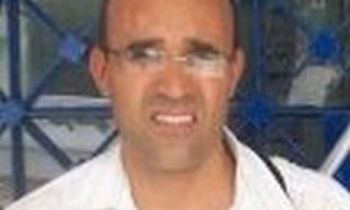The director of Voice of the People, a privately-owned radio station in Zimbabwe, was released Friday on bail of 4 million Zimbabwean dollars (40 euros) but will have to report to the police every week, according to reports. John Masuku is due to appear before a Harare court on January 13, 2006 on a charge of owning and using broadcast equipment without a licence from the Broadcasting Authority of Zimbabwe (BAZ).

Three other journalists of the radio station, arrested on December 15, were released four days later after being detained at Harare central police station. Maria Nyanyiwa, Takunda Gwanda and Nyasha Bosha were all released without charge. Their lawyer, Jacob Mafume, said his clients were freed after police admitted that they were really looking for the radio's proprietors. A few hours later, John Masuku was arrested.
The three journalists were arrested when the police raided the station. Stating that the station was not permitted to broadcast without a licence from BAZ, the police seized the station's computers and arrested the three journalists present at the time.
Armed state security agents raided the VOP office in Beverley Court Building in Harare at around 6 pm December 15 saying they were looking for broadcasting equipment, and claiming that VOP, which was legally registered as a Communication Trust since its creation in 2000, was not allowed to broadcast without a licence from BAZ.
Failing to find any broadcasting equipment, the police confiscated the radio station's computers and arrested Nyanyiwa, Gwanda and Bosha, who were taken to the Harare central police station.
VOP's programmes in Shona and Ndebele, Zimbabwe's two main languages, are broadcast on the short wave from 7pm to 8pm from a transmitter in Madagascar operated by Dutch public radio station, Radio Netherlands. VOP had to stop broadcasting from Zimbabwe after its studio in Milton Park in Harare were destroyed in an August 2002 explosion that was never solved by the police. With the help of Chinese technicians, the Zimbabwean intelligence services jammed VOP's broadcasts during October 18-26 this year. The jamming stopped after VOP switched to a different frequency.

The raid on VOP came soon after the government drew up a list of leading government critics, including politicians, human rights activists, lawyers and journalists, who are banned from leaving or entering Zimbabwe. Customs officials have been ordered to seize their passports.
Newspaper owner Trevor Ncube, for example, had his passport seized on arrival at Bulawayo airport in the south of the country on November 9. A resident in South Africa, Ncube immediately filed a complaint before the Harare high court, which ruled in his favour on December 15, saying the "invalidation or withdrawal or cancellation of the applicant's passport is unlawful, null, void and of no force and effect."
Reporters sans Frontières (RSF) said it was appalled by a police raid on VOP, and added, "Robert Mugabe's government is cracking down harder on dissenting news media and, in the face of an economic and political crisis, is behaving in an increasingly despotic manner."
It said, "After managing to resolve an impasse in the food insecurity situation, the United Nations should take the issue of civil and political liberties seriously and, right now, should at the very least insist on VOP being allowed to resume broadcasting freely and should demand the immediate release of its three journalists."









